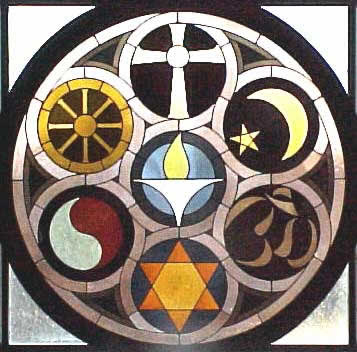—–0—–
Definitions
PHILOSOPHIA PERENNIS The metaphysic that recognizes a divine Reality substantial to the world of things and lives and minds; the psychology that finds in the soul something similar to, or even identical with, divine Reality; the ethic that places man’s final end in the knowledge of the immanent and transcendent Ground of all being. – Aldous Huxley
Perennial philosophy (Latin: philosophia perennis “eternal philosophy”, also Philosophia perennis et universalis) is the notion of the universal recurrence of ….. insight independent of epoch or culture, including universal truths on the nature of reality, humanity or consciousness (anthropological universals).
Concerning Universalism I make the following distinction.
To subscribe to Perennial Philosophy you almost certainly will hold a ‘pan-religious’ and inter-faith position including some theological ideas such as pan-en-theism – which holds both immanence and transcendence to be true at one and the same time true. My favourite quotation that celebrates this idea is;
“God is a circle whose centre is everywhere, whose circumference is nowhere.”
Anonymous, ‘The Book of the Twenty-four Philosophers‘ (12thC)
On the other hand a universalist in my view however can have an open and respectful mind and an open and generous heart whilst staying with her/his cultural roots.
Barack Obama (I hope) is one such example. More striking is the specificity of Abraham Joshua Heschel’s traditional Hasidic faith as compared to the Universalism of his heart and astoundingly deep insights into core mystical and eternal reality, and especially the nature of being human in the world – with others.
Either way the world has no more desperate need than an increase in the ability of people to see the oneness in, and beyond, specific belief systems – whether they do it from a truly Perennial Philosophy position or as a Universalist.


